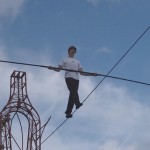Lack of investment in treatments and cures for one of the UK’s most common health conditions is costing the NHS more than £200 million a year, highlights charity Action on Hearing Loss (formerly RNID) during a visit by their Patron HRH The Duke of York to University College London’s Ear Institute.
One in six people have some form of hearing loss, with this figure expected to rise by 50 per cent in the next two decades. This puts hearing loss in the UK’s top 10 disease burdens, above cataracts and diabetes. Yet, for every person with hearing loss, just £1.34 is spent on research: ten times less than sight loss (£14.21) and a fraction of the spend on diabetes research (£21.31).
The Duke met with biomedical researchers to discuss new investigations to enable future refinement of cochlear implants. The projects are funded by Action on Hearing Loss the only UK charity dedicated to funding hearing loss research.
Action on Hearing Loss’ Chief Executive, Paul Breckell, said:
“We are delighted that His Royal Highness has been able to visit our work today and sincerely hope that his support will help raise awareness of this largely ignored area of health research. Currently, there are no treatments or cures for hearing loss or tinnitus despite the increasingly large number of people, both old and young, who suffer from these conditions.
“Hearing loss can increase vulnerability to social isolation, depression and reduce employment opportunities. Investment in research to prevent loss and restore hearing has the potential to, not only improve the quality of life for millions of people across the UK, but save the economy millions of pounds.”
Public and not-for-profit organisations, such as Action on Hearing Loss, fund almost half of health-related research, with private and pharmaceutical organisations funding the remainder. However the gap between research findings and clinical application means that, of the 7,500 drugs in development worldwide, only 18 are marked for hearing problems.
To find out more please visit www.actiononhearingloss.org.uk/your-hearing/biomedical-research





